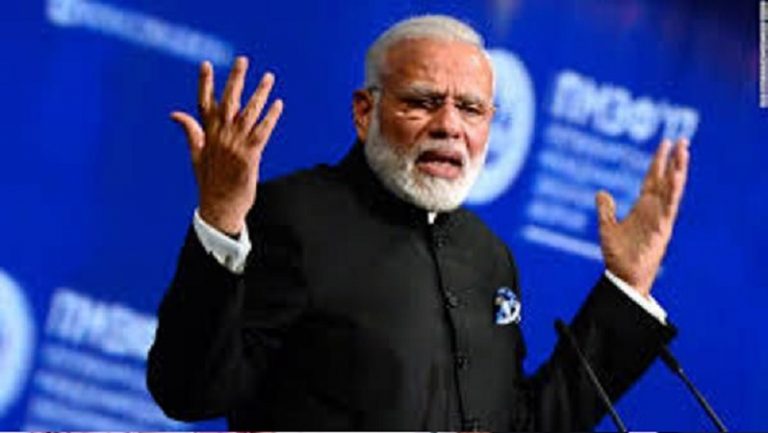
On Thursday, India announced new rules aimed to expand regulation of contents on social media. In the past weeks, the Asian country has been at brawl with social media platforms over its attempt to influence what they allow to stay up on their platforms.
India has been making legal requests for swift removal of posts and sharing of details on the originators of messages from social media platforms.
The new rule, called the Intermediary Guidelines and Digital Media Ethics Code, will require big social media companies to establish a grievance redressal mechanism and within three months appoint new executives to coordinate with law enforcement.
Register for Tekedia Mini-MBA edition 18 (Sep 15 – Dec 6, 2025) today for early bird discounts. Do annual for access to Blucera.com.
Tekedia AI in Business Masterclass opens registrations.
Join Tekedia Capital Syndicate and co-invest in great global startups.
Register for Tekedia AI Lab: From Technical Design to Deployment.
Social media platforms have been under intense pressure from the public and right groups to up their fight against hate speech and disinformation. At the same time, they are facing criticism for banning users and removing offensive posts. Many have described it as “censorship” and attempt to “suppress free speech.”
India minister for information technology, Prasad said the Intermediary Guidelines and Digital Media Ethics Code will make social media more responsible and accountable.
Under the rule, social media firms are required to remove content within 36 hours of receiving a legal order. They are also under obligation to assist in probes or other cyber security-related incidents within 72 hours of receiving a request. The rule added that they must disable any post depicting an individual in a sexual act or conduct.
Part of it mandates social media firms to reveal the originator of a message or post when legally ordered, according to Prasad.
Twitter and Facebook, which are among the major social media networks in India said they welcome the new rules but will have to study them. “The details of rules like these matter and we will carefully study the rules,” Facebook said in a statement.
“We believe that regulation is beneficial when it safeguards citizen’s fundamental rights and reinforces online freedoms,” said Twitter spokesman.
Attack on free speech
In early February, India was going hard on its protesting farmers and cut off the internet as the demonstration intensified. At the heat of the protest, when the rest of the world appears to be minding their business, American singer Rihanna tweeted: “Why aren’t we talking about this?” #FarmersProtest. She posted the message with the picture of the protesting farmers.
The tweet drew global attention to the protesting 250 million farmers, prompting unprecedented backlash. In response, Indian ministry of external affairs released a statement criticizing celebrities and others for their “neither accurate nor responsible comments.” Top ministers tweeted in response to Rihanna’s tweet, saying it’s part of propaganda threatening India’s unity.
India went further to ask Twitter to remove 1,178 accounts tweeting about the protest, alleging they are Pakistani accounts working to fuel the discord. Earlier in January, the government had sent a list of 257 tweets and accounts that it wanted blocked in India to Twitter.
Twitter had obliged, removing the accounts and blocking the tweets. But a heavy backlash forced the social media platform to reverse its decision with an explanation.
“Twitter is guided by principles of transparency and empowering the public conversation. If we receive a valid legal request about potentially illegal content on Twitter, we review it under the Twitter Rules and local law. If the content violates Twitter’s Rules, the content will be removed from the service.
“If it is determined to be illegal in a particular jurisdiction but not in violation of the Twitter Rules, we may withhold access to the content in the location only. In all cases, we notify the account holder directly, so they’re aware we’ve received a legal order pertaining to the account. Our goal is to respect local law while protecting our foundational principles of free expression,” Twitter spokesperson said.
This response appears to be the reason India is making the new rules to give legal backing to government orders against social media accounts and posts.

The Intermediary Guidelines and Digital Media Ethics Code will also require video-streaming platforms like Netflix and Amazon’s Video to classify content into five categories based on user’s age. As part of the rules, online news media will be regulated, with the ministry of information and broadcasting creating an oversight system.
Concerns are growing that India, by making these rules, is towing the path of China in suppressing free speech.
Apar Gupta, the executive director at advocacy Internet Freedom Foundation, said the new rules posed risks to freedom of speech.
“To fix the problems in these sectors the government has adopted an approach which carries the risk of political control and censorship,” he said.
Another backdrop to the new rules is the Digital India quest, an estimated $250 billion internet economy. It is part of Prime Minister Narenda Mordi’s program geared toward transforming India into a digitally empowered society and knowledge economy. The program has seen big names in the American tech industry, like Google, Facebook and Amazon rushing to India to establish businesses and secure a share in the huge market.
The companies have policies supporting freedom of speech which is going to be endangered by the new rules.
But India has a booming population that offers a huge market to the tech industry. With many of the American firms already banned in China, another big market in Asia, the Intermediary Guidelines and Digital Media Ethics Code are presenting them with a fight they cannot afford to pick with India now. Their vulnerability means the new rules will likely go into force without contest.



